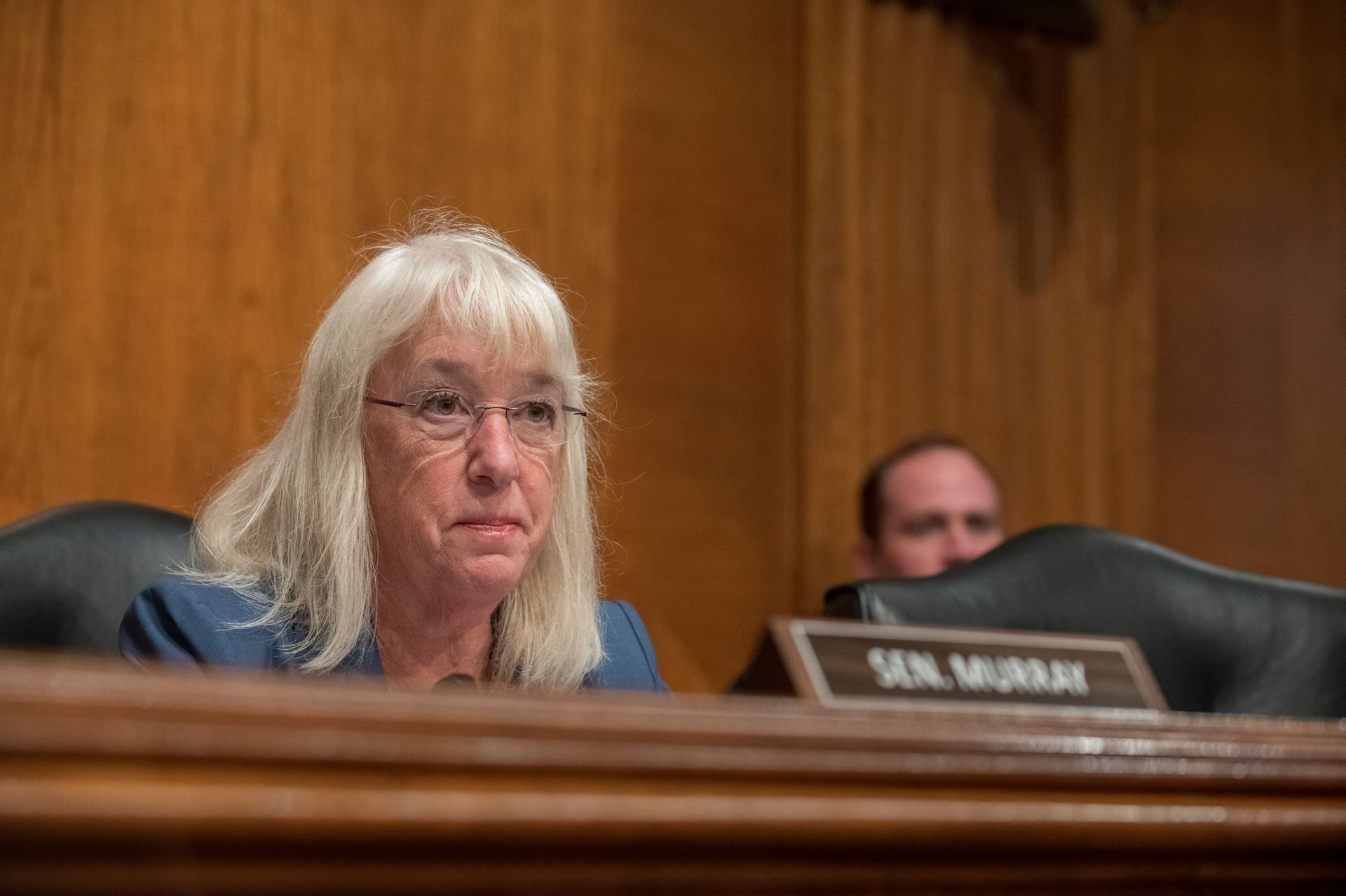At Hearing with HUD Secretary, Senator Murray Highlights Urgent Need to Address Homelessness and Fund Affordable Housing
Senator Murray: “It’s not rocket science, we need more housing and we need more affordable housing—so let’s help our communities build it”
***WATCH SENATOR MURRAY’S FULL QUESTIONING HERE***
(Washington, D.C.) – Today, during a Senate Appropriations Subcommittee on Transportation, Housing and Urban Development hearing on the President’s budget request, U.S. Senator Patty Murray (D-WA), a senior member of the Senate Appropriations Committee, questioned U.S. Secretary of Housing and Urban Development (HUD) Marcia Fudge on the homelessness crisis and the inadequate supply of affordable housing—both longtime funding priorities for Senator Murray.
“No matter where I am in my state, whether its Seattle, Spokane, small communities, large communities, suburbs—housing is the number one topic people are so concerned about, so I’m delighted to work with you to see that we can really make sure we are boosting the funding for some really important bipartisan programs. Homelessness actually in my state was a crisis before the pandemic, and it’s something I am really focused on: whatever we can get passed in a budget to help people keep a roof over their head—I’m all in,” began Senator Murray. “Can you talk a little bit about how this funding request that you have would address homelessness in our communities and the urgency of this crisis?”
Secretary Fudge replied that there is almost $600 million in additional homeless assistance grants specifically in the President’s Budget and that other parts of the budget would help address homelessness as well.
Senator Murray also asked Secretary Fudge to lay out her plan to address the shortage in affordable housing. The FY 2023 budget would invest $35 billion into a new Housing Supply Fund which would provide grants and other streamlined financing tools to state and local housing finance agencies for affordable housing development.
“It’s not rocket science, we need more housing and we need more affordable housing—so we’ve got to help our communities build it,” said Senator Murray. “I know that we’ve got $35 billion dollars in your budget request in new housing supply fund that provides grants to state and local housing. Can you talk a little bit how that will be helpful?”
Secretary Fudge responded that the agency is working with state housing finance agencies to make loans for low-income and moderate-income housing affordable and profitable for builders. Under the President’s requested budget, HUD would also increase the Housing Trust Fund and raise the cap on low-income housing tax credits to make low- and moderate-income housing worth building. Secretary Fudge explained that President Biden’s requested budget would provide the resources necessary to build 500,000 new homes.
Senator Murray expressed her strong support for the President’s budget on housing. The proposed budget includes a total of $50 billion in new mandatory funding to boost the nation’s housing supply (inclusive of the $35 billion noted by Senator Murray that would provide grants to state and local housing finance agencies). Importantly, targeted housing assistance helps to reduce crime, increase employment, and improve health outcomes.
Senator Murray has been a strong advocate for housing investments, securing more than $400 million in rental assistance, $170 million in homeowner assistance, over 2,400 new Emergency Housing Vouchers, and nearly $100 million for housing and services to support people experiencing homelessness in Washington state specifically through the American Rescue Plan. These federal investments resulted in the largest eviction prevention effort in history. Earlier this year, Senator Murray also announced $143.6 million in Low Income Home Energy Assistance Program (LIHEAP) funding for Washington state from the American Rescue Plan, in addition to annual federal appropriations, that would go to families with low-incomes to help with utility and energy costs during the winter.
###


